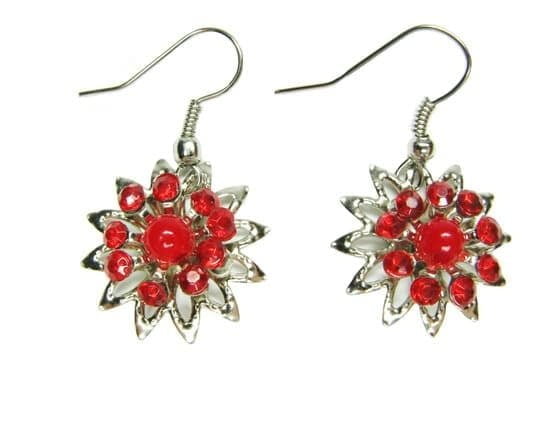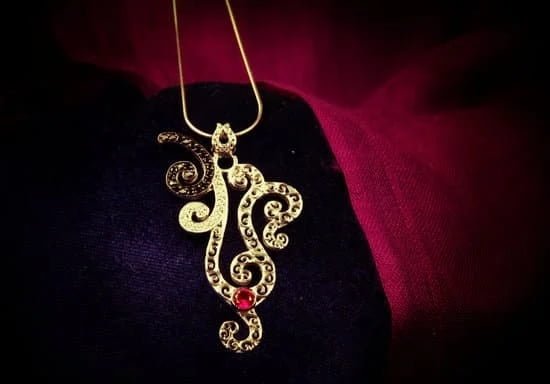Introduction
When it comes to selling jewelry, there are a variety of options. Depending on the type of jewelry you have and the price you hope to obtain, you can find opportunities both online and offline. Whether you’re looking to sell one valuable piece or have a full-fledged collection that needs a new home, finding the right buyer is essential in getting the most out of your item(s).
Online Options: An increasing number of people are turning to online platforms for buying and selling jewelry. Popular websites like eBay, Etsy, or Amazon make it easy for sellers to advertise their products. The convenience of an online market also allows buyers from all over the world to view your items—and thereby creating the potential for higher bids from those who specialize in collecting different types of jewelry. Additionally, many online marketplaces impose low fees and provide great support systems so sellers can manage their accounts more efficiently.
Offline Options: Besides taking advantage of the internet’s reach, you may also opt for traditional sales methods such as flea markets, pawnshops, auctions, or vintage stores. Each venue has its own pros and cons; local shops may offer lower prices but less exposure whereas attending an auction requires costly off-site fees yet exposes your items to serious collectors with deep pockets. Ultimately it comes down to what interests and fits your style as well as how much time you need from your initial listing until closing the sale.
Preparing to Sell Your Jewelry
When you’re ready to sell your jewelry, it is important to make sure that it is of the highest quality. Take time to create pieces that are well-crafted and made from the best materials. After you have created quality pieces, start learning about how to price your creations. Look up current market prices for the materials used and take into account the cost of production. You should also be aware of any existing trends or designations that may affect pricing. Once you have a better understanding of how much you should charge, it is important that you gather all the appropriate supplies necessary for selling your jewelry. This may include displays, bags or special packaging materials, marketing materials such as pamphlets, or perhaps business cards or website information. Be sure to properly prepare everything so customers can easily see what they will receive with their purchase.
Exploring Different Types of Jewelry
When it comes to selling jewelry, there are a variety of options and platforms available. Online auctions are popular for selling jewelry and other items. Sites such as eBay have connected buyers and sellers from all over the world, offering an easy way to buy or sell jewelry. There are also dedicated websites to buy and sell jewelry that specialize in certain types of stones, metals, or design styles. Websites like Etsy or JewelStreet provide unique options for customers who seek one-of-a-kind pieces created by independent designers. Local craft fairs, co-ops and swap meets can also be great venues to display your product and find potential buyers interested in custom made jewelry. For more traditional buyers antique stores, pawn shops, and estate sales may be good sources for finding customers who are looking for classic designs or collectible pieces. Of course, there is always an aspect of word of mouth marketing that shoppers should consider – happy customers will spread the word about a product they enjoy – so it never hurts to put the word out through friends and family as well.
Finding an Audience
There are many different places you can sell your jewelry. An excellent place to start is online. Selling your jewelry on websites such as Etsy, eBay, and Amazon allows you to reach a much wider audience than if you just sold in person. Additionally, these websites make it easy to set up a shop profile, list items for sale and let potential buyers find you! You may also want to consider setting up a website of your own or utilizing social media sites such as Instagram or Facebook where customers can purchase directly from your page.
For more personal interactions with potential buyers, local craft fairs and trade shows provide great opportunities for you to showcase and sell your jewelry in person. This gives people the chance to see your items up close and ask questions which yields more sales opportunities. Additionally, cold-calling boutiques to see if they would be interested in carrying some of your pieces is another good way to find an audience for this type of product. You could also consider donating some samples or participating in raffles/giveaways through local organizations as a form of promotion that helps build brand recognition. Lastly, don’t forget about friends and family; word-of-mouth is still one of the best ways to get the word out about your business!
Selling on Online Platforms
The rise of technology has created a wealth of opportunities for creatives wanting to showcase and sell their jewelry. Nowadays many artisans, independent craftspeople, and budding entrepreneur have the ability to take their business to the worldwide web. Getting started is relatively easy and requires very little tools or financial investments.
To begin, create an online shop through a popular platform like Etsy or eBay. While both platforms have variations of fees associated with setting up an account, the process is straightforward and simple enough for anyone to undertake. You’ll want to promote your shop by publicizing your items across all your social media channels like Instagram and Facebook. Quality images are essential – having professional photographs taken can help make your jewelry look its best. You’ll also need good product descriptions that accurately reflect the piece you’re selling so there are no surprises for buyers when they receive their purchases.
Once you have a few sales under your belt focus on building a community around your brand by engaging with customers on social media platforms alongside providing excellent customer service after the sale. By keeping customers happy you’ll foster loyalty and word-of-mouth marketing which will result in more sales! To explore other selling methods consider showcasing at marketplaces, festivals, boutiques, galleries or even just connecting with family and friends near and far to spread word about what you do!
Traditional Jewelry Retailers
Traditional jewelry retailers are a great option for those looking to sell their jewelry. Local boutiques, department stores, jewelers, pawn shops and antique stores often purchase both new and used pieces. The process of selling your jewelry at theses retailers varies, but typically the retailer will assess the piece for authenticity and value before offering a price to buy it from you.
The key benefit of opting for a traditional jewelry retailer to sell your items is that you know upfront what you’re going to be offered for your items – as long as you accept the offer then there’s no waiting around or uncertainty. It can also be a much faster process than online avenues. The downside however is that these retailers may not offer very competitive prices due to the fact they mark up items they plan to sell on fairly quickly. Additionally, depending on where you go some may not accept certain types of jewelry or may only take items in better condition – if yours don’t meet their criteria then it won’t be accepted.
Selling Your Jewelry in Person
Trade shows are a great way to sell your jewelry. As an exhibitor, you’ll be able to network with customers and exhibitors in your industry and show off the unique pieces you have created. There is usually an associated cost with exhibiting at a trade show, but the rewards, such as new customers or a wider audience for your brand, can be worth it. Boutiques are also retailers that are increasingly open to buying jewelry from independent designers and makers. Many boutiques like featuring interesting pieces from local talent to help set themselves apart from other stores in the area. You can also consider seeking out fairs and markets in your city which may be specifically devoted to craftspeople and small businesses – these are usually full of shoppers who love finding unique items made by artisans in their community. If you make custom-made jewelry, this can be an especially great option for you as many buyers want one-of-a-kind items that nobody else has. Finally, don’t forget about online avenues for selling your jewelry! Social media sites such as Instagram, Etsy, Pinterest and more make it easy for people searching for unique handmade items to find exactly what they’re looking for. Additionally, partnering with influencers who have already built up an audience can help spread the word even further about your work.
Creative Methods for Selling Jewelry
Consignment is a great way to sell your jewelry. This involves finding a store that specializes in consigning items, and then working with the store to display and promote your pieces. They will usually charge you a small fee, but it can be well worth it since someone else is doing the actual selling for you.
Local advertising, such as advertisements in newspapers or radio spots can also be an effective way of getting the word out about your jewelry. You can also place flyers and business cards in local stores or hand them out at public events. This works especially well if you design unique pieces which appeal to people in your local area or set up a booth at a craft fair or farmers market.
Last but not least, is social media; an invaluable tool for selling jewelry these days. You can create accounts on platforms like Facebook, Instagram and Pinterest to showcase your jewelry with potential buyers worldwide. Additionally, you can use paid ads on these sites that target customers based on their interests so they’re more likely to visit your page and potentially make a purchase.
Wrap Up
Maximizing your jewelry profits by selling your pieces in the right places is key. When it comes to selling your jewelry, research is key. You want to be sure that you are targeting an audience who will appreciate the craftsmanship, quality and design of your pieces. Whether it’s through online platforms or physical stores, be mindful that each marketplace has its own advantages and potential risks associated with them. Take the time to get to know each individual platform before committing. Make sure that any store or website where you sell your pieces provides clarity on terms of sale and a secure payment system for customers. You may also consider building an ecommerce platform of your own if you have large quantities of inventory or niche jewelry designs to showcase. Lastly, make sure that planning for shipping and taxes are part of your business plan so there are no surprises! With these tips, you should have the guidelines necessary when it comes to selling your jewelry more effectively and making more profits from your creations.

Welcome to my jewelry blog! My name is Sarah and I am the owner of this blog.
I love making jewelry and sharing my creations with others.
So whether you’re someone who loves wearing jewelry yourself or simply enjoys learning about it, be sure to check out my blog for insightful posts on everything related to this exciting topic!





